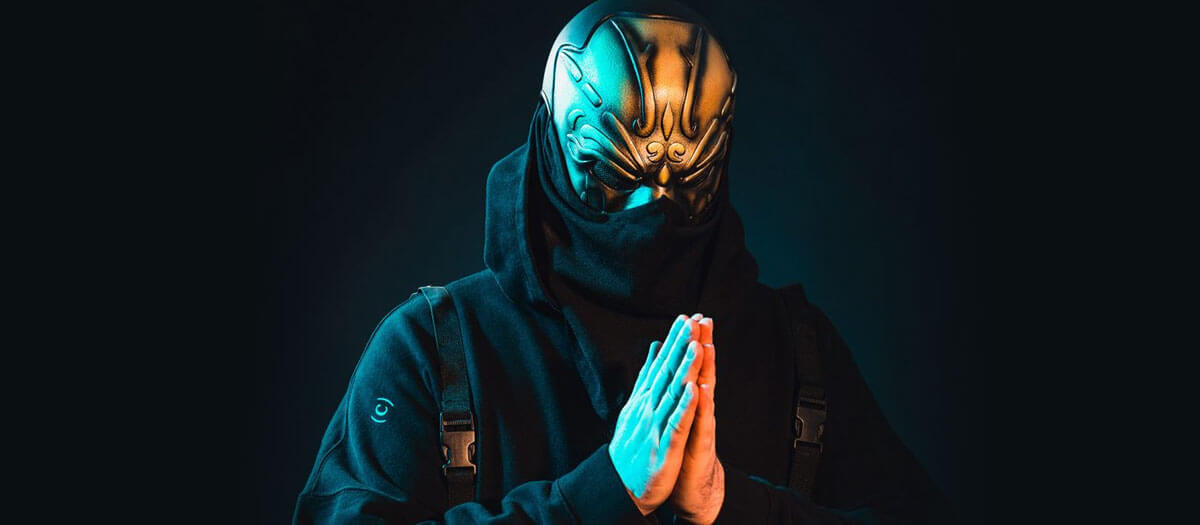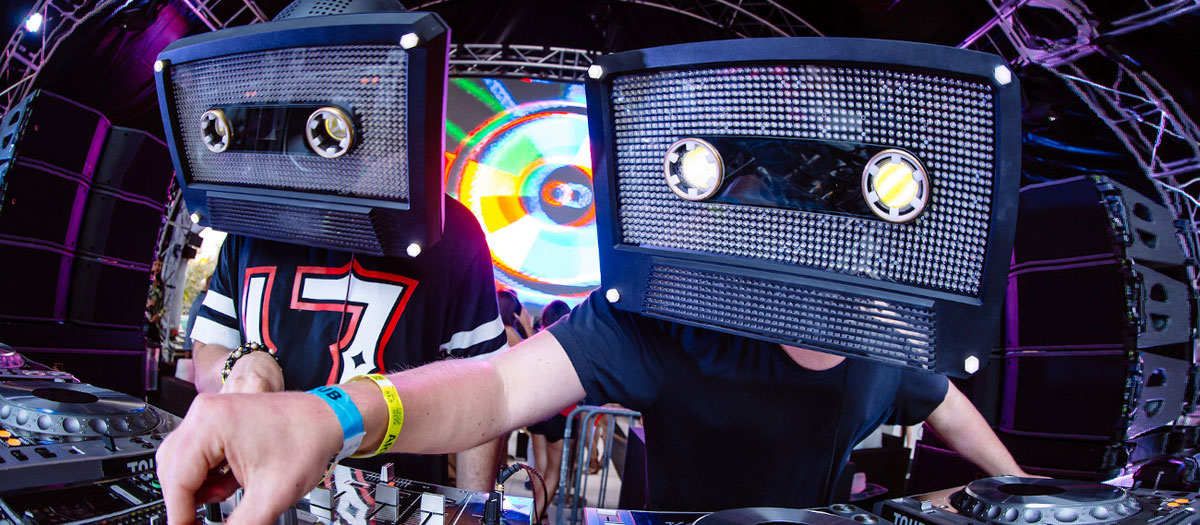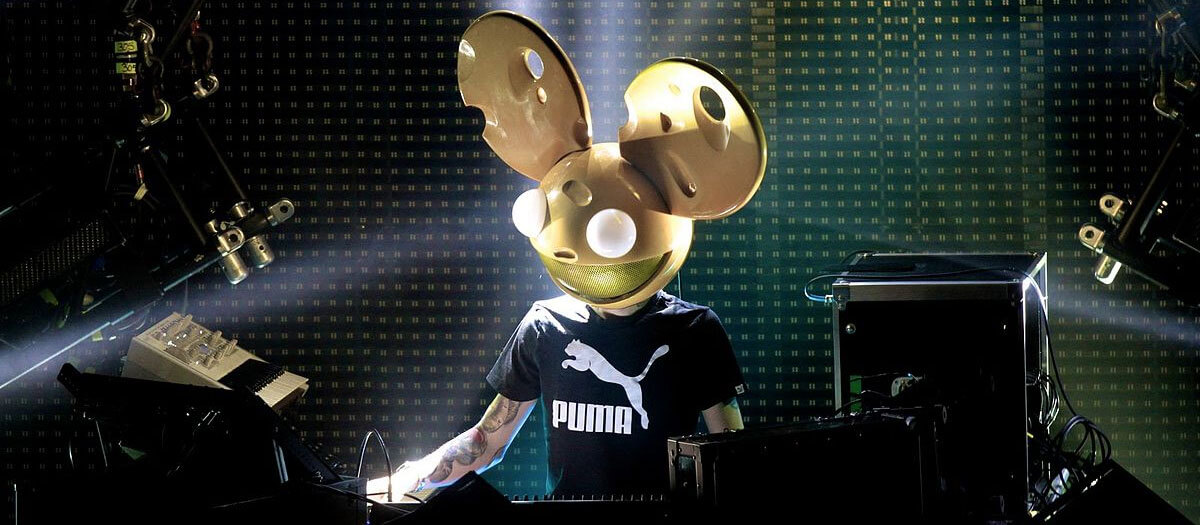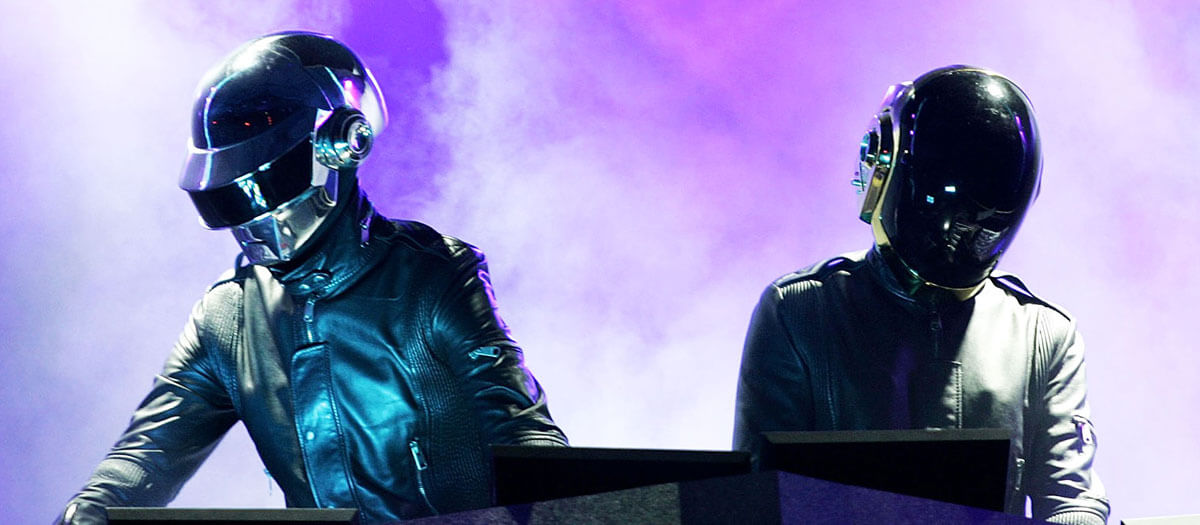In the growing industry of Electronic Dance Music, it’s evident more artists than ever before are using masks to enhance their stage show and add branding to their name.
When an artist steps onstage, they’re ready to perform. They’re prepared to become someone else and put on a different face to present to the world. Many artists use an alias or alter-ego to perform live and the perfect example of this is Joel Zimmerman performing at Deadmau5.
For some artists; it’s almost like they adopt an alternate persona when they climb onstage. Bob Sinclar, for instance, manifests as an international playboy, while Fatboy Slim is Norman Cook’s extrovert persona, when in reality he’s modest and self-effacing offstage. For a select few, wearing a mask helps them transform from ‘normal’ music lover to charismatic party-starter and with more and more these days, it seems that if you want to get ahead, get a mask.

INFLUENCE
Metaphorically speaking, we all wear masks throughout our daily lives, but it is within dance music where those masks have become literal. In a wide array of weird and wonderful shapes, these masks have become a regular feature on the current dance music circuit and you can quite easily say that they’ve infiltrated every subgenre of EDM. From live electronic bands, underground show-runners through to stadium filling megastars, act of assuming another identity behind a mask at its pinnacle right now.
Although the use of masks is beginning to take off in the EDM world, in the pop industry it is nothing new. Looking back from the 1970s until now, from David Bowie’s infamous greasepaint lightning strike across his face, the makeup of classic rockers KISS, Eminem performing in the Jason Voorhees hockey mask, up to the likes of metal bands Slipknot and Gwar (they went even further and donned whole outfits) masks have certainly held an importance in not only branding but live theatrics.
Consider the list and the large variety of styles and personalities it encapsulates: Daft Punk, SBTRKT, Cazzette, Deadmau5, REZZ, Marshmello, Malaa, Empire of the Sun, Bloody Beetroots, Square Pusher, Jaguar Skills, DJs From Mars, Shit Robot, Funtcase, DJ Bl3nd, Mr White… it goes on.
Influence is certainly one of the biggest reasons as to why so many acts have decided to use masks. Without Daft Punk and their brilliant retro-futuristic robot helmets, it’s doubtful we’d have had Deadmau5, both paragons of huge success in the dance industry. While the two have music with a lot of personality, for others wearing a mask has become a business model designed to generate interest.

PERSONA
Another significant reason why DJs and electronic music producers put masks on is that covering their faces allows them to become someone else. Not necessarily to hide, but instead to present an image of how they would like to be portrayed. These guys could be bedroom producers to whom stepping out in front of an audience is terrifying in their natural form. With the aid of a mask, this can turn their persona from a shy person into the party starter they need to portray; essentially turning Clark Kents into Supermans.
Wearing masks is quite essentially a beefed-up version of what famous psychologist Carl Jung called “the persona”. To Jung, the persona was the aspect of an individual’s self that they chose to present to the world, an alter ego of how they want to be seen rather than what they are really like.
Sometimes though, the mask comes to take on an unnatural life of its own, with the wearer becoming unnerved by the obsession that fans attach to the persona of the mask, rather than the person who puts it on. In a 2007 interview with DJ Mag, just before he become massive, Deadmau5 was interviewed for a cover feature, and even then, before becoming a stadium-sequestering name the mask filled him with a certain feeling of unease.
“[The mask is] not something that I can even control anymore. It gets a little out of hand, I feel like I’m gonna get booed when I don’t wear it. It’s really weird, I feel like, ‘Oh God, why did I start doing this?’ But in every interview it’s ‘Are you going to wear the mouse head? Why the mouse head?’ Mouse head mouse head! I do music too!” Indeed there’s the fear that artists can become the literal manifestation of the mask they wear, that the persona can takeover the real self and the mask become its wearer. Carl Jung saw this merging as a worrying warping of the personality. “The danger is that [people] become identical with their personas — the professor with his textbook, the tenor with his voice.” – Deadmau5

EMBLEMS
Looking past the psychological reasons behind using a mask, and the implications, there are further more practical applications. Masks are totems, describing the music, giving the sound a physical manifestation. Masks are quite emblematic of the artist’s style of electronic production.
Daft Punk for instance suggest suggest the disco past and gleaming machine future duality of their music in the 1970s sci-fi robot helmets they put on while SBTRKT puts on a specially designed African tribal mask to channel the ghostly apparitions and ghouls invoked by his supernaturally vicious tunes.
“Tribal masks, that whole culture of experiencing ancestors, when they’re worn in a specific dance or ritual, they take on the persona of someone else. For SBTRKT that made total sense,” – SBTRKT
Finally, masks also offer a way of disassociating the music from the maker, allowing the tunes to do the talking. Some artists use the mask to completely conceal their identity, with the biggest acts including are Daft Punk, Redshape, and trap sensation ƱZ.
